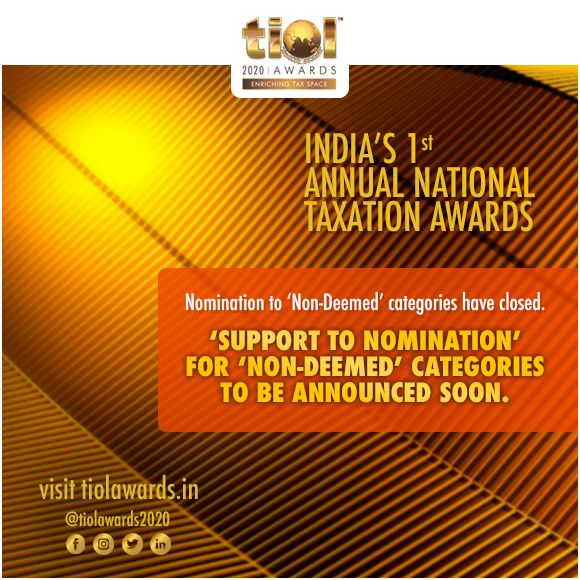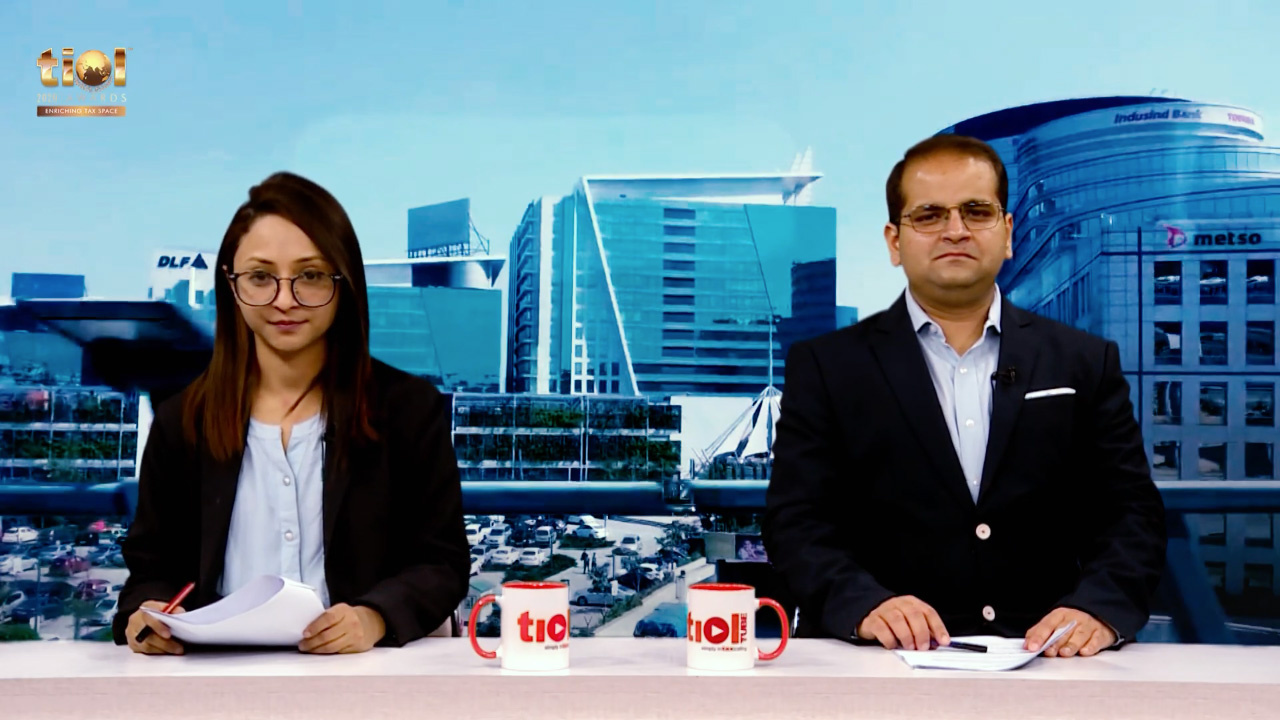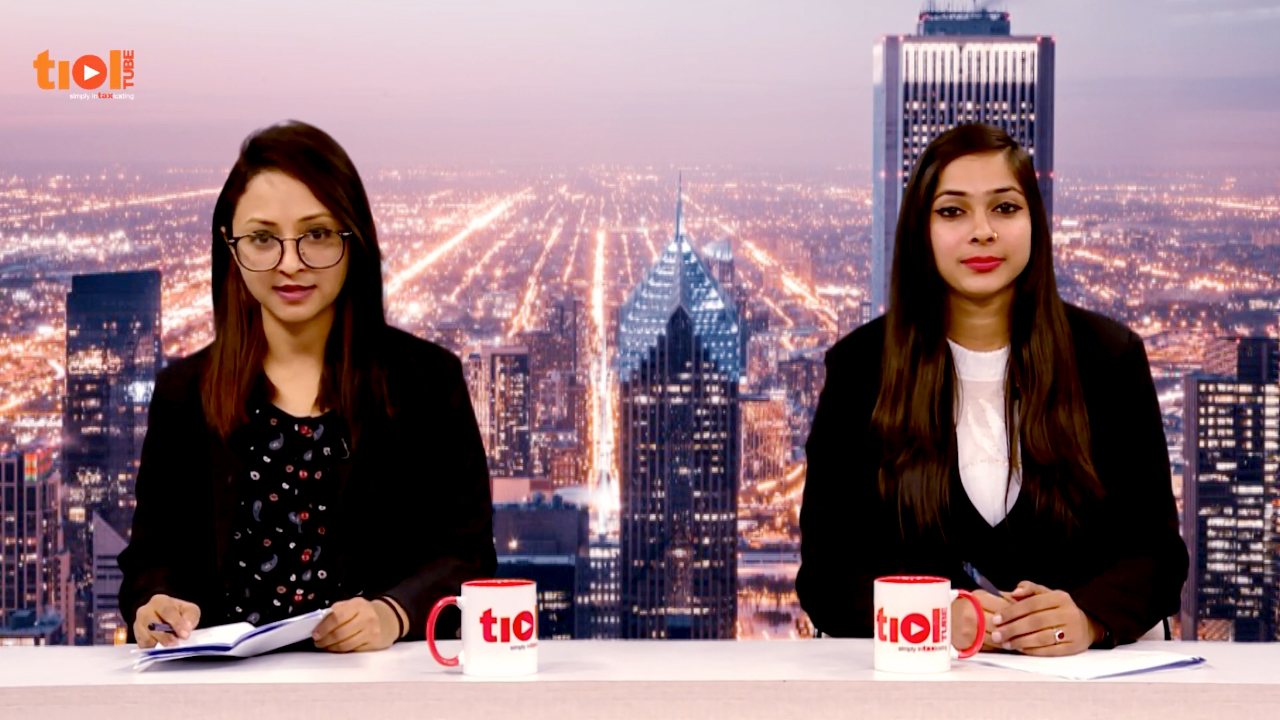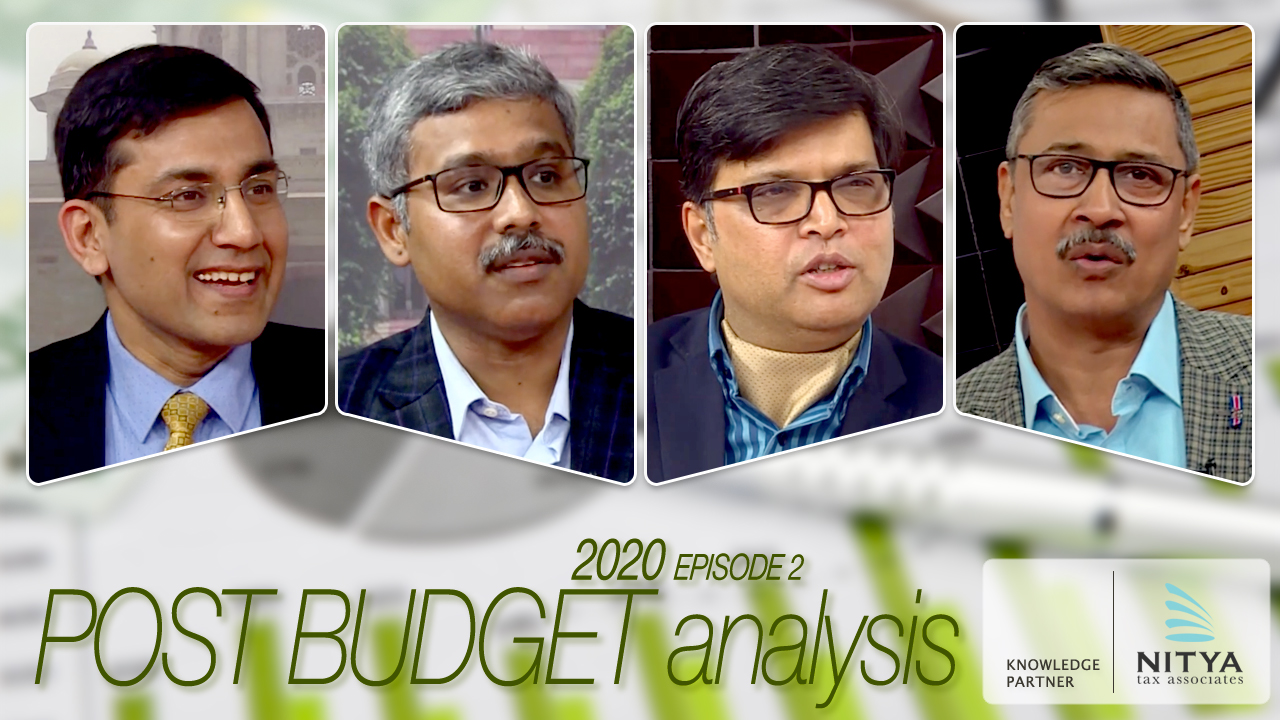| SERVICE TAX
2020-TIOL-390-CESTAT-DEL
United Engineers Vs CCE & CGST
ST - The assessee, a contractor is mainly engaged in executing works contracts for the Nuclear Power Corporation of India Limited, Rajasthan Atomic Power Project - During the relevant period, duty demand had been raised on the gross turnover, without giving any allowance for the material utilised in executing the contract - The assessee is also registered with the Sales Tax Department and claimed to have discharged VAT/Sales Tax liability as well - On appeal, the Commr.(A) remanded the matter for quantification of service tax demand after allowing cum tax benefit and deduction for trading receipt from gross value - The penalty was also to be requantified - Hence the present appeal contesting such findings.
Held: It is seen that the assessee provided works contract, wherein it executed work and also supplied the material - Thus the gross amount paid to it by the principal includes the value of material - The assessee is also assessed to sales tax and paid VAT on the value of the materials to be sold to the principal in execution of works contract - In the O-i-O, the Commr.(A) acknowledged there to be mistakes in calculation of dues - Hence the matter is remanded to the adjudicating authority for re-quantification of tax liability after allowing deduction for the material component, which is verifiable from the sales tax assessment order and from other records as well - The assessee is entitled to cum tax benefit as already held by the Commr.(A) and also entitled to turnover - Further, in absence of any mala fide intent on part of the assessee, no penalty is imposable u/s 76 and 78 of the Finance Act - The penalty imposed u/s 77 merits being reduced in terms with the re-calculation of the duty demanded: CESTAT
- Case remanded: DELHI CESTAT
2020-TIOL-389-CESTAT-BANG
Kerala Cooperative Deposit Guarantee Fund Board Vs CCT & CE
ST - The assessee is a board constituted for administration of cooperative deposit fund, by the State Govt of Kerala - The minister in charge of the cooperation would be the chairperson of the baord and all other members would be nominated by the Govt of Kerala - The contribution to the fund is the sum of money payable to the fund by the credit societies at the rate specified & the purpose of the scheme is to provide guarantee for the deposits made in the credit societies and to create confidence among depositors and attract more details - The fund is to be used for settlement of claims in respect of the deposit which are guaranteed - All the money in the fund is to be deposited in the State District Cooperative Banks or in the treasury - There is no provision that the interest accrued is to be added to the corpus fund - If a society is unable to make payment to the depositor, the latter is free to approach the board for assistance - The Revenue issued SCNs in the relevant period, alleging that such activities qualified as services u/s 65B of the Finance Act - Such SCNs were confirmed on adjudication - Hence the present appeal.
Held: There is no doubt that the assessee's activities are similar to those of Deposit Insurance and Credit Guarantee Corporation of India (DICGC) - Hence if DICGC is liable to pay service tax, so is the assessee - In respect of the penalties, it is seen that the assessee is a body constituted by the Govt - It is trite law that mens rea cannot be attributed to PSUs - Hence it is not expedient to impose penalties - The duty demand and interest is sustained whilst the penalties u/s 77 & 78 of Finance Act, are set aside: CESTAT
- Assessee's appeal partly allowed: BANGALORE CESTAT
CENTRAL EXCISE
2020-TIOL-388-CESTAT-AHM
Sumangal Glass Industries Pvt Ltd Vs CCE & ST
CX - CENVAT - Adjudicating Authority has denied CENVAT credit on capital goods on the ground that the appellant had taken 100% credit instead of 50% - Bench finds that the year of receipt of capital goods is 2005-06, whereas the credit was taken in October 2007 - As per Rule 4(4) of CCR, 2004, it is clear that taking 50% credit is applicable only if Cenvat credit is availed in the year of receipt of capital goods - As per proviso to sub-rule, the assessee is entitled for the credit of remaining 50% in the subsequent Financial Years and this means that in the subsequent year of receipt of capital goods the appellant is entitled for 100% Cenvat credit - On this ground, the denial of Cenvat credit is not correct and legal: CESTAT [para 10]
CX - CENVAT - Construction service - Adjudicating Authority denied the Cenvat credit only for the reason that appellant have claimed depreciation on building - Credit in respect of setting-up of factory building is clearly covered in terms of inclusion clause of definition of Input Services as provided in Rule 2(l) of Cenvat Credit Rules, 2004 - Merely because the appellant have availed Cenvat credit showing building as capital goods, admissibility of Cenvat credit of service tax paid on construction of building does not get extinguished - It is settled by a plethora of judgments by Tribunal that merely because the credit was taken under wrong head, the same is not sufficient to deny the credit: CESTAT [para 11]
- Appeal allowed: AHMEDABAD CESTAT
2020-TIOL-387-CESTAT-CHD
Suma Fibres And Allies Ltd Vs CCE & ST
CX - CENVAT credit is sought to be denied on the ground that cutting and slitting of CR Coils into sheets does not amount to manufacture, therefore, the appellants are not entitled to avail Cenvat credit of duty paid on these coils - it is an admitted fact that after cutting and slitting of CR coils and converting them into sheets, appellants have cleared the goods on payment of duty, therefore, in terms of the Bombay High Court decision in Ajinkya Enterprises - 2012-TIOL-578-HC-MUM-CX wherein it is held that payment of duty by utilizing CENVAT credit should be termed as reversal of credit - no merit in the impuged order, hence appeal is allowed with consequential relief: CESTAT [para 5 to 7]
- Appeal allowed: CHANDIGARH CESTAT
CUSTOMS
2020-TIOL-386-CESTAT-DEL
CC Vs UT Electronics Pvt Ltd
Cus- The assessee-company imported cellphones and paid duty in excess of what was payable, albeit with such payment being made under protest in compliance with condition in Notfn No 12/2012, which required levy of CVD @ 1% - At the time of clearance, the respondents paid CVD @ 12.5% - Hence refund was claimed in respect of differential amount of CVD - Of the total refund claimed, the adjudicating authority directed that the refund amounts claimed in respect of the different periods, be deposited in the Consumer Welfare Fund - Such orders were quashed with the same directed to be paid to the assessee within 15 days of the order - The present appeal by the Revenue assails such orders of the Commr.(A).
Held: It is seen that the Revenue did not place any specific evidence on record to rebut the findings of the Commr.(A) regarding the factual position that burden of duty incidence was not passed on by the assessee to its customers - Moreover, the judgments relied on by the Revenue are those where the duty incidence was not shown separately on the invoices and the agreed upon price was charged only - Besides, the assessee also demonstrated that the average ex factory price for the period prior to the relevant period, in the relevant period and thereafter, remains almost constant - The assessee also paid the Excise duty on the intermediate product, albeit under protest - The invoices evidencing the sale showed that the price charged did not include the Excise duty component - Hence when the assessee's invoice reflected a composite price and duty was not indicated separately and the sale price of the goods before and after the revaluation, remained the same, it can be inferred that incidence of duty was not passed onto the consumers - Merely because the Excise duty is booked as expenditure in P&L a/c, it cannot be said that the incidence of duty is passed on - Onus otherwise rests upon the Department to prove that burden of duty was passed on - There is no such evidence produced by the Department in this regard - Hence the refund cannot be denied: CESTAT
- Revenue's appeals dismissed: DELHI CESTAT
|







